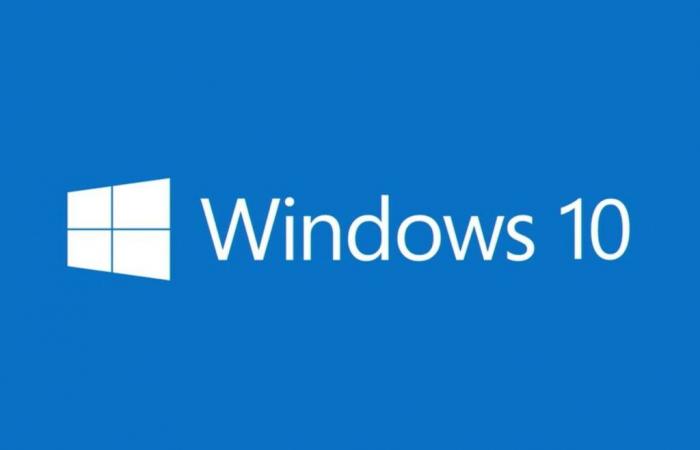On October 14, Windows will no longer send Microsoft 10 security updates for free: while this could encourage many to upgrade to Windows 11 or take out their bank card to extend the life of their computer, 01net.com wanted to take stock of the subject.
What updates are we entitled to when we buy a computer or smartphone? How long do electronic device manufacturers have to update their operating system, the software that allows a machine to function?
The question is important, because the lifespan of a device depends on the time of its updates, whether it concerns the operating system or security patches. Without these, it is impossible to benefit from the latest features, but above all, impossible to install patches for security vulnerabilities. In other words, a device without an up-to-date operating system becomes vulnerable to cyberattacks, when it may end up not working at all.
Despite its importance, the issue of updates has until now been put aside. In France as in Europe, legislators have rather focused on hardware and guarantees linked to repairs or spare parts. But the trend could soon be reversed.
Also read: Access to spare parts, extended warranty… This is what your new “enhanced right to repair” consists of
French law only provides for an information obligation, but no minimum duration
Since the AGEC law and a 2022 decree, smartphone and computer manufacturers are required to inform consumers of the duration for which software updates will be available. When purchasing a device, you are therefore expected to have easy access to this information.
Also note that in theory, manufacturers do not have the right to deliberately reduce the lifespan of a product, including through updates: a 2015 French law prohibited planned obsolescence, but in practice, this provision is difficult to apply.
But apart from this obligation of information and this prohibition in principle which only exists in France, the law has mainly focused on the material part. There is currently no mandatory update duration, whether functional or security-related.
During the AGEC law of 2020, “ we managed to get minimal uptime for spare parts, but we never managed to get anything for software maintenance “, regrets Flavie Vonderscher, head of advocacy within Stop Planned Obsolescence (HOP), interviewed by 01net.com.
This explains that for smartphones for example, we find durations ranging from 2 years to 7 years, 7 years being planned in particular for high-end phones such as Google’s Pixel 8 and 9 or Samsung’s Galaxy S24. For iPhones, Apple plans a minimum of five years of updates from the launch date.
Also read: Android updates in 2024: which brands offer the best software tracking?
Smartphones: 5 years minimum from June 2025
This cacophony should change from next June, thanks to a European regulation: all smartphone and tablet manufacturers will have to at least guarantee five years updates to their operating system from the date of a product launch.
-This rule, resulting from European Regulation 2023/1670, specifies that this concerns “ security updates, patch updates, and feature updates ».
The idea is to “ ensure that users continue to receive these updates for a minimum period of time and at no cost, including for a period after the manufacturer has stopped selling the affected product model », specifies this European law, which sets ecodesign requirements.
While this remains a very positive point, HOP regrets that the European durability index, which replaced the French repairability index, does not encourage manufacturers to go further than this minimum of five years. Manufacturers who go beyond this duration will not in fact be better “rated”.
Also read: How long will my TV last? The sustainability index is now displayed next to the price
For computers and their operating systems: no obligation for the moment
For other electronic devices such as computers, no minimum duration is currently planned. But the question should be decided in ” delegated acts » which will be directly applicable in France and in the 26 other EU countries. It is the European Commission which, on the basis of the 2023 regulation, must adopt these texts, each delegated act being specific to a particular product. For computers, the consultation phase is completed, and a draft should be published during 2025 (in the 4th quarter) therefore at the end of the year, according to the Commission website.
The Stop Planned Obsolescence (HOP) association, which was consulted by Brussels, explains to us that it campaigned for the mandatory minimum duration of updates to go beyond five years, the mandatory duration for smartphones. “ Quite simply because we are supposed to keep a computer longer », underlines Flavie Vonderscher, head of advocacy within the association.
For its part, Arcep, the French telecoms policeman, wanted to make its contribution, by publishing a note last July, intended for the Commission. The French authority pleads for “ computer manufacturers and distributors » “maintain the operating systems pre-installed on their devices”. “Essential security updates for their use” must be provided free of charge “during une period of 10 years from the end of the placing on the market of the associated computer ».
It would therefore be a question of imposing ten years of software support for a product, starting not from its launch, but from the withdrawal from the market of the associated device: a starting point which raises questions because it rests on the manufacturer computer – the one who removes the device from the market like Asus, HP, Huawei, Lenovo… which often differs from the operating system provider like Windows, macOS, Linux, …
This would theoretically mean, if Arcom’s suggestion is adopted, that the update would have to be delivered much longer than what is planned today. Windows 10, launched in 2015, will be updated until October 2025. However, if I buy an HP computer with Windows 10 in January, this operating system should theoretically be updated, with this rule, until 10 years from the withdrawal of the HP computer from the market – a withdrawal which has not yet occurred.
« When an operating system is no longer maintained », Arcep also suggests that the Commission ask computer manufacturers to “ facilitate the use of alternative operating systems ». Not sure this will appeal to operating system developers. See you at the end of the year to see what has been retained by the European Commission.
???? To not miss any news from 01net, follow us on Google News and WhatsApp.





